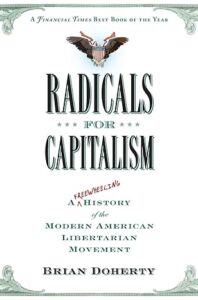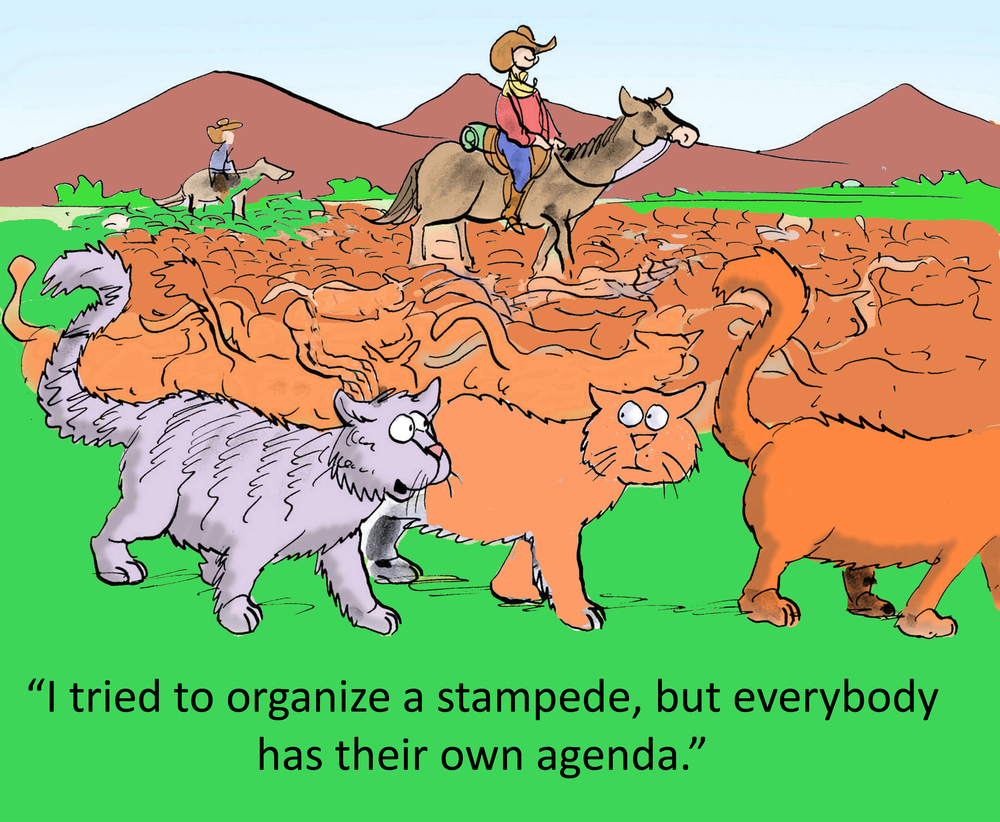The Libertarian Party: Too Principled to Win?
Libertarianism has always suffered from some cognitive dissonance. It combines a certain hopeful, perhaps naïve, optimism about human social relations with a clear eyed realism about individual self interest. While libertarians acknowledge that people pursue individual goals they also tend to believe that properly organized social institutions, particularly markets and self governance, can coordinate those individual pursuits and protect people from the risks of centralized government power. That same general outlook has informed the Libertarian Party (LP) since its founding in 1971.
Throughout US history, none of the dominant parties have held consistent beliefs about much of anything, let alone individual liberty. Rather, the major parties have shamelessly chased voters in ragtag coalitions with little concern for a philosophically grounded vision of the good society. Today’s Democratic party of racial diversity and wokeness was once the party of racial segregation and Roman Catholicism in the mid 20th century and prior to that the Confederacy. Today’s Republican Party, which is now largely white, and more committed to government intervention in the economy, was once the party of Lincoln and later the party of Reagan and free markets. The two party duopoly is blissfully free of ideological consistency over time.
And yet while one set of consistent principles animates the LP, that hasn’t had much resonance with the voting public. Perhaps that’s understandable since voters themselves typically don’t have strong or consistent philosophical views. And of course the single member, winner take all districts in the American political system discourage third party success. But more recently the party with one set of principles is in the midst of a sectarian conflict over the essence of those principles and how they should be achieved. Unsurprisingly libertarianism attracts strong individualists who believe that cooperative solutions to social problems are possible except apparently for themselves.

On the one hand we have the current leadership, the so-called Mises Caucus, animated by a commitment to what they believe is a purer representation of libertarian principles with roots in the Murray Rothbard/Ron Paul wing of the movement. Their beliefs frequently crossover into anarcho-capitalism and contain elements of conservative social views. They are regular and frequent users of social media, and so far have shown less aptitude towards old school politics and compromise. Their adversaries are the previous leadership group – let’s call them the Old Guard, who had been more flexible on policy and willing to dilute the party’s purity while widening the electoral appeal. This group had both brought record high vote totals to the party in the form of the Johnson-Weld ticket in 2016, but also a late plea from Governor Weld to support Mrs. Clinton in 2016 and other significant deviations from core principles.
There are echoes of this divide throughout the history of the party and the liberty movement the 20th and 21st centuries. But social media, generational turnover in the party, and the changes in the political context have made the division starker and, as I’ll argue later, perhaps more costly than in the past. The conflict raises questions not only about the future of the LP, but also the future of libertarian thought and perhaps even the branding of the term libertarian.
As Brian Doherty’s widely read and cited book Radicals for Capitalism documented, the history of the Libertarian Party has been filled with internal strife and conflict that mirror this current rift. Doherty entertainingly describes the early years of the party’s founding and formation that featured many prominent libertarians refusing to participate in the party’s work while others tried to function within the mainstream party system. And the history of the party is full of people who began their careers with the LP only to leave for DC in hopes of moving the needle in concrete ways that cat herding never would.

Why does this dispute matter in particular now? We are facing an election with two profoundly unpopular candidates from the duopoly. President Biden is wildly unpopular having overseen relatively poor economic performance during his term in office and widely viewed by voters as being too old to run again. President Trump, who was polarizing 3 years ago, has doubled down on divisive politics and is facing numerous criminal indictments for his actions during the January 6th, 2021 riots at the US Capitol.
A legitimate third party alternative committed to liberty principles, one that was perhaps on the ballot in all 50 states and seriously interested in running a nationwide competitive campaign, would pose an interesting alternative to the duopoly as it is currently constituted. I am describing the LP, which was still on the ballot in all 50 states in 2020 and remains a bastion of freedom, but the internal conflict between the Old Guard and the Mises Caucus has derailed any chance that the party might unify behind a viable candidate.
This may of course merely be wishful thinking. Third parties have never seriously threatened the two party system in the US, and the institutional and legal deck is heavily stacked against any alternative. But philosophically, both the Democrats and Republicans have moved away from significant positions on issues of liberty. Democrats, supposed the party of inclusion and personal freedom, after 3 years of controlling the White House and briefly both houses of Congress, have done very little on ending the Drug War, appear to be working against significant immigration reform, and seem intent on increasing the size and scope of government. The Republican party under Trump has jettisoned any pretense of defending a smaller national government and believing in free markets. The former president is campaigning on a platform of revenge against his enemies and personal attacks. The political landscape is devoid of any liberty oriented candidates. But before we speculate on the prospect that the LP would have any direct or indirect influence on promoting liberty oriented issues, we have to explore how it became so fractured.

